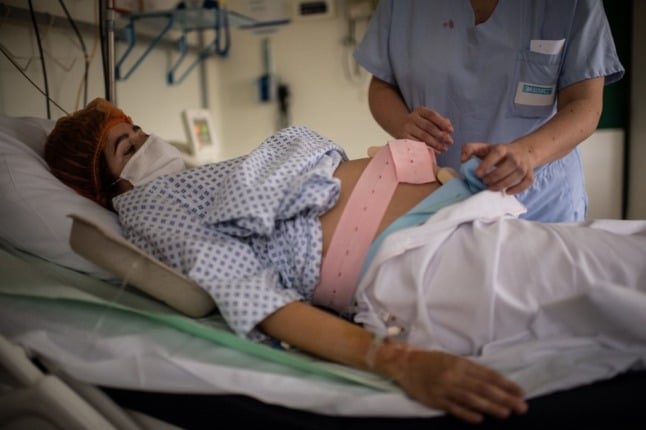Women in Spain become mothers at a later age than all their European counterparts, EU data shows, with the average Spanish woman having 1.34 children.
Another study released in March 2021 found that the pandemic had made Spain’s birth rate drop further still to its lowest level in 80 years, and Spain’s National Statistics Institute estimates the country could lose five million inhabitants in the next 50 years, with immigration currently proving to be the best remedy to this population loss.
With all these stats in mind, Madrid’s regional president Isabel Díaz Ayuso announced on Monday that she would tackle her region’s “demographic challenge” with the “greatest plan to boost the birth rate” yet, as well as measures to address the family-work balance, to be launched on January 26th.
IVF age limit raised
With an investment of €4.5 billion over the next five years, the standout measure of the 80 to be introduced is that the age limit for women to access free in vitro fertilisation through the public healthcare system in Madrid will go from 40 to 45 years.
The number of available attempts through public hospitals will be expanded from two to four attempts per woman.
The legal age limit for IVF to be done privately in Spain is 50 years old.
According to the website eggonationfriends.com, “Spain is the most expensive European IVF destination – due to both very high standards of treatment and the wide availability of donors. The cost of a single own egg IVF cycle ranges from €4,100 to €8,200 while an egg donation cycle may cost from €5,900 to €11,000.”
The Community of Madrid’s new IVF treatment will also now be made available to women who already have another child. Two new IVF units will be created and Madrid’s first ovocyte egg bank will be set up.
“Each person will be able choose the centre among the seven currently available, with a single shared waiting list,” Ayuso told journalists on Monday. Waiting times from the first checkup to the actual IVF treatment currently vary from two to four years depending on the Madrid hospital.
According to stats published by Spain’s Health Ministry and the Spanish Fertility Society (SEF), a total of 180,906 fertility treatments were carried out in Spain in 2019, of which 37,428 babies were born.
READ ALSO: Spain restores free IVF to singles, lesbians and now trans people
Other birth rate-boosting measures
Among the 80 measures which are yet to be fully revealed is the already implemented financial aid scheme in Madrid which grants €500 per month per baby to mothers under 30 with yearly earnings below €30,000.
In addition, there will be an extension of deductions of up to €2,100 in parents’ Personal Income Tax for the birth or adoption of a child over the first three years and a flat rate for self-employed women who return to work after motherhood.
Other measures for new mothers in the Spanish capital include making the work days more flexible, giving them tax incentives for property purchases or rent and priority access to the region’s rental VIVE Plan.
Ayuso has requested “the involvement of the National Government, which is the one with broad powers, since many of the family and work balance measures require dialogue with the companies”.
Madrid’s regional president will request that Sánchez’s government implement a reduction of at least 50 percent of the employer’s social security quota for workers who join after parental leave and more tax incentives for bosses who give more flexibility to workers with children under the age of 12.



 Please whitelist us to continue reading.
Please whitelist us to continue reading.
Member comments